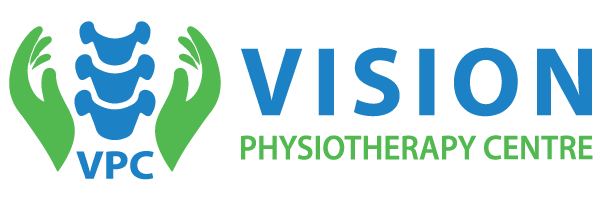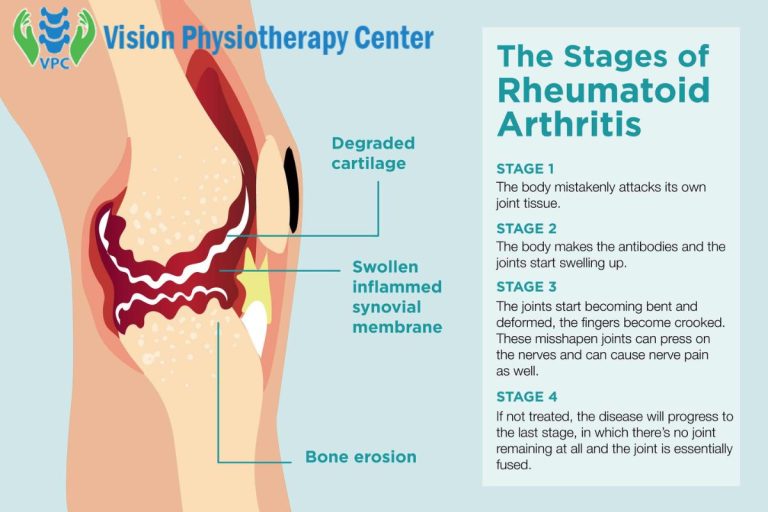Rheumatoid arthritis (RA) is a condition that affects the joints and causes pain, swelling, and stiffness. Treatment focuses on managing the symptoms and improving the quality of life for individuals with this condition. It involves medications to reduce pain and inflammation, physical therapy to strengthen the joints, and regular exercise to improve flexibility. This article will explore rheumatoid arthritis treatment, its various treatment options, and how they can help individuals manage their symptoms effectively.
What Is Rheumatoid Arthritis Treatment for Joint Pain?
The treatment for rheumatoid arthritis aims to control the symptoms and slow down the progression of the disease. The main goals are to reduce pain and swelling, increase joint movement, and improve overall quality of life.
Doctors often prescribe medicines like pain relievers and drugs that modify the immune system. Medications, physical therapy, and regular exercise can help strengthen joints and increase flexibility.
Working closely with your doctor to create a treatment plan that suits your specific needs and preferences is important.
Understanding Rheumatoid Arthritis
Understanding rheumatoid arthritis is important to comprehending this chronic disease that affects the joints. In rheumatoid arthritis, your body’s defence system attacks your joints, leading to pain, swelling, and stiffness.
Rheumatoid arthritis can make everyday tasks difficult and impact quality of life. By learning more about it, individuals can better manage their symptoms and seek appropriate treatment options.
Provide a simple and clear explanation of rheumatoid arthritis, including its causes, symptoms, and available treatments. With this understanding, individuals can make informed decisions and work with healthcare professionals to effectively manage rheumatoid arthritis and improve their overall well-being.
Importance of Rheumatoid Arthritis Treatment for Relieve Pain
The importance of rheumatoid arthritis treatment to relieve pain cannot be overstated. Rheumatoid arthritis is a chronic condition that causes joint pain, swelling, and stiffness, significantly impacting a person’s daily life.
Without proper treatment, the disease can progress and lead to joint deformities and disability. However, with appropriate treatment, the symptoms of rheumatoid arthritis can be managed, allowing individuals to regain mobility and improve their quality of life.
What is a rheumatoid arthritis treatment option? Treatment options for rheumatoid arthritis may include medications to reduce inflammation, physical therapy to strengthen the joints, and lifestyle modifications. Individuals with rheumatoid arthritis must work closely with healthcare professionals to develop a personalized treatment plan that addresses their specific needs.
By prioritizing and committing to treatment, individuals can effectively manage their symptoms, slow down the progression of the disease, and maintain an active and fulfilling life.
What Are the Symptoms of Rheumatoid Arthritis and Treatment?
Rheumatoid arthritis causes joint pain, swelling, stiffness, and reduced range of motion. Treatment involves medication, physical therapy, and lifestyle changes. Medications reduce inflammation, while physical therapy improves mobility.
Lifestyle changes include exercise, rest, and stress management. Early diagnosis and treatment are essential to manage symptoms and prevent further joint damage.
What Is Early Rheumatoid Arthritis Treatment?
Early rheumatoid arthritis treatment refers to the methods used to manage the condition in its initial stages. The aim is to reduce symptoms and prevent joint damage.
Treatment options include physiotherapy and exercise to help improve mobility and strengthen muscles. Regular monitoring and follow-up with healthcare professionals are crucial for effectively managing early-stage rheumatoid arthritis.
What Is The Most Successful Treatment for Rheumatoid Arthritis?
Physiotherapy is a type of treatment that focuses on physical methods to manage various health conditions, including rheumatoid arthritis. It involves exercises, manual techniques, and other therapies to improve mobility, strength, and function.
Physiotherapy is often used in combination with other treatments for rheumatoid arthritis, such as medications and lifestyle changes. The most successful treatment typically involves a comprehensive approach that includes physiotherapy, medication, and lifestyle modifications to manage symptoms and improve the overall quality of life effectively.
Working closely with healthcare professionals to determine the most suitable treatment plan for each individual is important.
What is Rheumatoid Arthritis Triple Therapy?
Rheumatoid arthritis triple therapy is a comprehensive treatment approach for managing the symptoms of rheumatoid arthritis. It combines three medications: disease-modifying antirheumatic drugs (DMARDs) like methotrexate, corticosteroids such as prednisone, and tumour necrosis factor (TNF) inhibitors like adalimumab.
This triple combination targets inflammation, provides rapid pain relief, and slows down joint damage, offering a more effective strategy for individuals living with rheumatoid arthritis.
What is New in Rheumatoid Arthritis Treatments?
Exciting developments have emerged in rheumatoid arthritis (RA) treatments, offering hope for improved outcomes. Novel biological therapies and targeted synthetic drugs have been introduced, providing more options for personalized medicine.
These medications target different aspects of the immune system and inflammation pathways, enhancing effectiveness and minimizing side effects.
Additionally, advances in precision medicine and biomarkers pave the way for tailored therapies based on an individual’s unique genetic profile and disease characteristics. Such innovations bring optimism for better control and management of RA.

How Is Rheumatoid Arthritis Diagnosed?
Doctors diagnose rheumatoid arthritis by examining the patient’s medical history, exploring the body, and performing laboratory tests. During the medical history assessment, the doctor asks about symptoms, their duration, and any family history of arthritis. We also use Shockwave Therapy to improve this pain.
A physical examination checks for joint swelling, tenderness, and range of motion. Blood tests are commonly done to measure specific antibodies and markers of inflammation. X-rays and imaging tests may also be used to assess joint damage.
The diagnosis of rheumatoid arthritis is based on a combination of these findings and the fulfilment of specific criteria established by medical guidelines. It is important to consult with a healthcare professional for an accurate diagnosis and appropriate management.
Non-Pharmacological Treatment Approaches
Non-pharmacological treatment approaches refer to methods of managing health conditions without using medications. These approaches often focus on lifestyle modifications and therapies.
For example, in chronic pain, non-pharmacological treatments may include physical therapy, exercise, heat or cold therapy, acupuncture, and relaxation techniques.
In mental health, non-pharmacological treatments can involve counselling, cognitive-behavioural therapy, and stress management techniques.
These non-pharmacological approaches aim to improve symptoms, enhance overall well-being, and reduce reliance on medications. It is important to consult healthcare professionals to determine the most suitable non-pharmacological treatment options for individual needs and conditions.
Surgical Interventions for Rheumatoid Arthritis
Surgical interventions are options for managing rheumatoid arthritis when non-surgical treatments do not provide sufficient relief or when joint damage is severe.
Standard surgical procedures for rheumatoid arthritis include joint replacement surgery, synovectomy, and tendon repair. Joint replacement surgery involves removing and replacing the damaged joint with an artificial joint.
Complementary and Alternative Therapies
Complementary and alternative therapies are additional treatment options that can be used alongside conventional medical approaches.
These therapies promote healing, reduce symptoms, and improve overall well-being. Examples of complementary and alternative therapies include acupuncture, chiropractic care, herbal remedies, massage therapy, and mind-body practices like yoga and meditation.
While some people find these therapies helpful in managing their health conditions, it is important to note that scientific evidence supporting their effectiveness may vary. It is crucial to consult with healthcare professionals and discuss these therapies’ potential benefits and risks before incorporating them into a treatment plan.
Monitoring and Managing Rheumatoid Arthritis
Monitoring and managing rheumatoid arthritis involves regular assessment and a proactive approach to control the disease and minimize its impact on daily life.
This includes monitoring symptoms, joint function, and overall well-being.
Healthcare professionals may use various tools and tests to track disease activity, such as blood tests, imaging scans, and physical examinations.
Treatment plans are adjusted based on these assessments to ensure optimal control of symptoms and prevention of joint damage. In addition to medication, lifestyle modifications like regular exercise, a balanced diet, and stress management are important for managing rheumatoid arthritis.
Open communication with healthcare professionals and active self-care involvement are key to effectively monitoring and managing the condition.
What is Rheumatoid Arthritis Cure?
While there is currently no known cure for rheumatoid arthritis (RA), advancements in treatment options have significantly improved the management of this chronic condition. The primary goal of RA treatment is to control symptoms, reduce inflammation, and slow down joint damage.
Various medications, such as disease-modifying antirheumatic drugs (DMARDs), biologic therapies, and targeted synthetic drugs, are used to achieve these objectives. Additionally, lifestyle modifications, including regular exercise, a balanced diet, and stress management, can help improve the overall well-being of individuals living with RA.
Living Well With Rheumatoid Arthritis
Living well with rheumatoid arthritis involves adopting strategies to manage the condition and maintain a good quality of life. This includes taking prescribed medications as directed and following the healthcare professional’s advice.
Regular physical activity, such as gentle exercises and stretches, can help improve joint flexibility and reduce pain. A healthy diet that includes anti-inflammatory foods can also support overall well-being. It’s important to listen to your body and pace yourself, balancing activity with rest to avoid overexertion.
Managing stress and seeking support from friends, family, or support groups can also be beneficial. Additionally, staying informed about the latest treatment options and staying connected with healthcare professionals are essential in living well with rheumatoid arthritis.
Conclusion
Rheumatoid arthritis is a chronic condition that requires comprehensive management. Early diagnosis and appropriate treatment are vital in reducing symptoms and preventing joint damage.
Medications, lifestyle modifications, and therapies like physiotherapy are important components of an effective treatment plan. Non-pharmacological approaches and complementary therapies can also be considered.
Regular monitoring, open communication with healthcare professionals, and active involvement in self-care are key to successfully managing rheumatoid arthritis. In this blog post, we have understood the detailed guidelines for treating rheumatoid arthritis.
By adopting a proactive approach and making necessary adjustments, individuals can strive to live well and maintain a good quality of life despite the challenges posed by rheumatoid arthritis.
Written by.
Dr. Saiful Islam, PT
BPTh (DU), MPTh (Orthopedics) – NIPS, India
PG Certificate in Acupuncture, India
Specially trained in Ozone Therapy, USA and Ozone Forum, India.
Physiotherapy Consultant, Vision Physiotherapy Center.
To consult: 01760-636324 , 01932-797229 (9:00 AM to 9:00 PM) and make an appointment.
Our Facebook page: Vision Physiotherapy Center



